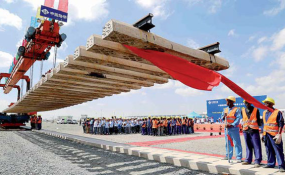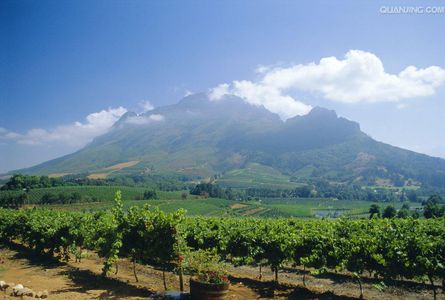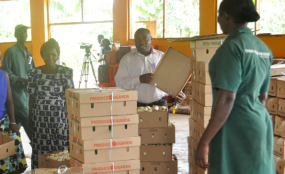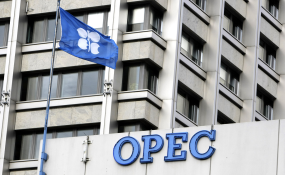By Frederic Musisi & Mark Keith Muhumuza
Kampala — Uganda’s Finance minister Matia Kasaija and his Kenyan counterpart are yet to get confirmation of the specific dates for further negotiations and possible financial closure from China’s ministry of Commerce which supervises EXIM Bank, the prospective financier of the Standard Gauge Railway (SGR), Daily Monitor has learnt.
Technocrats from ministries of Finance and Works as well as the SGR project led by Mr Kasaija had been scheduled to travel earlier-on for the meeting on February 27 (yesterday), but the arrangement suffered setbacks. The Ugandan team was supposed to travel with the Kenyan delegation to Beijing, China.
Mr Kasaija, yesterday, said they will travel any time but confirmed that they are yet to get the requisite clearances.
“It is true we did not travel; first, because we have not yet got confirmation from China’s ministry of Commerce about the date of meetings, and secondly we are waiting for clearance from their ministry of Foreign Affairs which did not come through–because as you might know this is a government-to-government meeting.”
The meeting is expected to reach a final understanding regarding the financing of the multi-billion dollar railway from Nairobi to Malaba on the Kenya side, and Malaba to Kampala on the Uganda side. The stretch from Mombasa to Nairobi is complete and is expected to be commissioned this June.
If the discussions are fruitful, Uganda expects an advance of $2.8b (Shs8 trillion) or 85 per cent financing for construction of the Malaba-Kampala stretch (273km). Each kilometre will cost $8.4m (approximately Shs30b).
The plan is that after the Malaba-Kampala stretch (the eastern route), Uganda will embark on the western route from Kampala to Ntungamo near the border with Rwanda and then northern route from Tororo to Packwach near the South Sudan border. The entire SGR project in Uganda is expected to cost $12.8b (Shs46 trillion), making it the most expensive infrastructure project in Uganda’s history. On the Kenyan side, the line (120km) running from Nairobi to Naivasha is expected to cost$1.7b (Shs6 trillion), the line (266km) from Naivasha to Kisumu port cost $3.6b (Shs13t) while the 107km line connecting to Malaba will cost $1.7b (Shs6t).
Beijing, which has for months been very guarded on financing the railway from Nairobi to Kampala and has been shuttling back-and-forth with economic calculations, to eventually release the money boxed officials from Uganda and Kenya into a tight corner to agree, guarantee and ensure timely construction of the connecting routes for the railway to run seamlessly up to Kampala for it to make sense.




